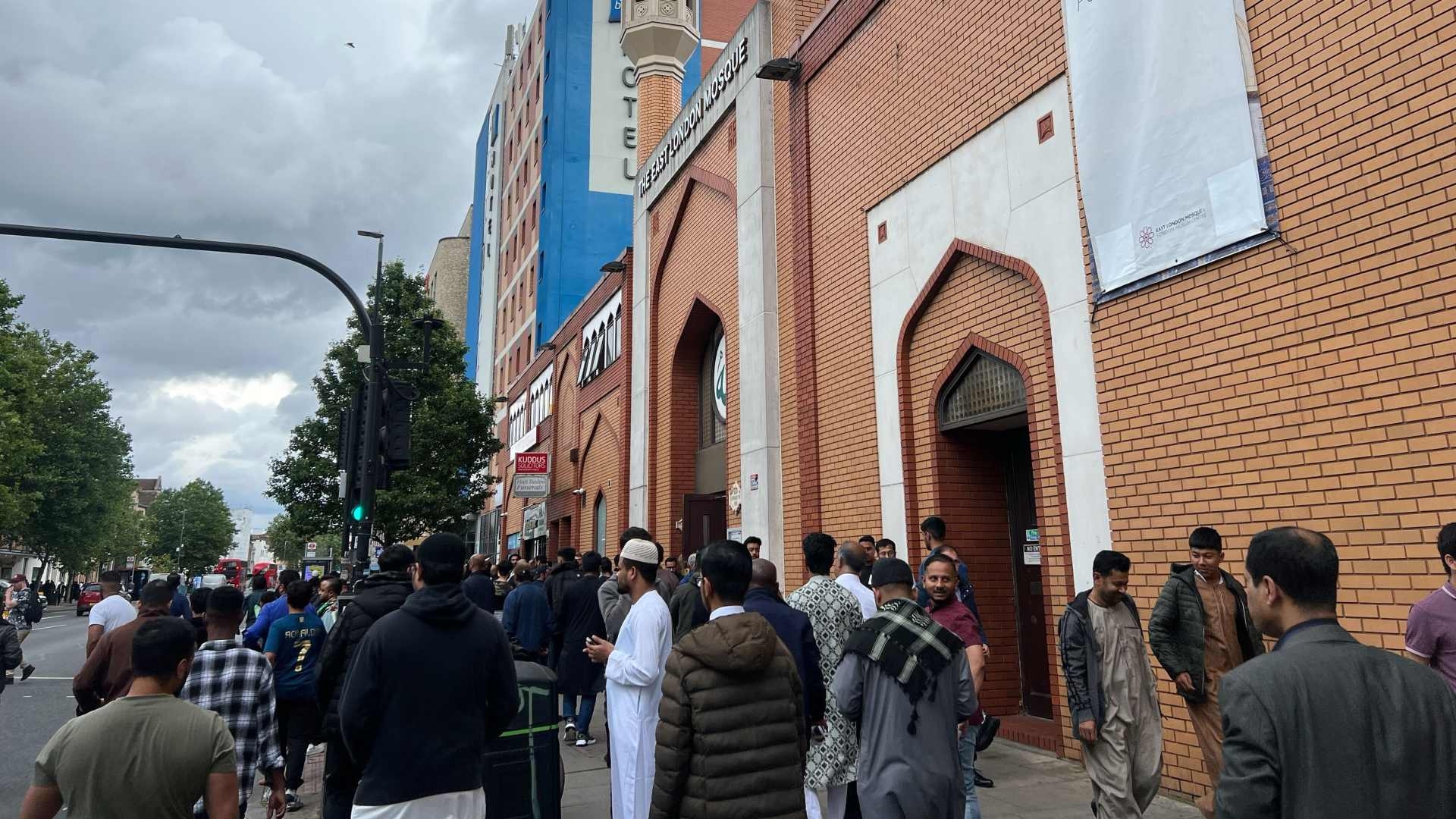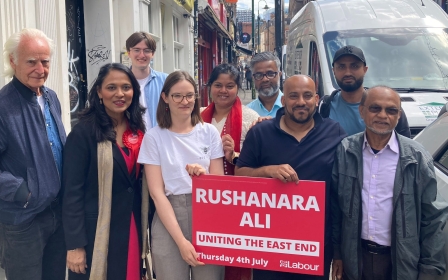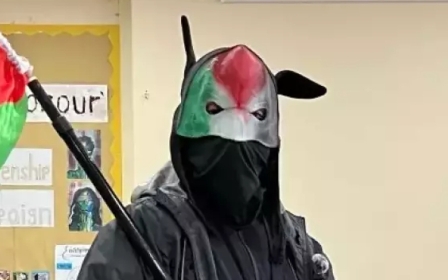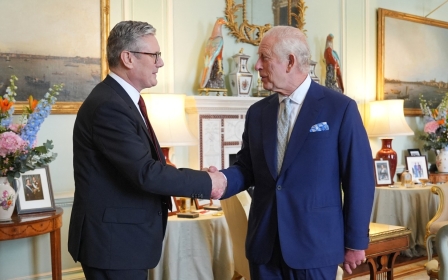'No excuse': Frustration in East London as low turnout helps Rushanara Ali hang on

It’s a Friday afternoon, and like any other week, crowds of Muslim worshippers can be seen walking to East London Mosque on Whitechapel Road.
Some are dressed in suits and ties, coming straight from work, while others wear silk-like thobes paired with fresh trainers or sandals.
As worshippers rush to the mosque, one topic dominates conversations in a myriad of languages: Thursday’s UK general election.
The election delivered a landslide parliamentary majority for Keir Starmer’s Labour Party, which picked up seats all over the country.

In Bethnal Green and Stepney, once one of Labour’s safest seats, Rushanara Ali saw her previous majority of 37,000 slashed to just 1,689 votes.
Ali’s nearest challenger was independent candidate Ajmal Masroor, a well-known Muslim preacher whose campaign was fuelled by local frustration over Labour’s stance on the Gaza war.
On Friday, Masroor thanked those who backed him for their "magnificent support".
"You have sent Labour a clear message: that the politics of genocide is no longer acceptable and our votes cannot be taken for granted. You can hold your heads up high knowing that you have slashed Labour’s second-highest majority in the country. We will hold Labour accountable every step of the way," he said in a social media post.
The result mirrored a trend across the UK, where Labour MPs in predominantly Muslim or South Asian areas lost a significant number of votes, turning safe seats into marginals overnight.
Following boundary changes, Bethnal Green and Stepney included Shadwell and Whitechapel from the neighbouring Poplar and Limehouse constituency.
The wards bucked national trends by turning their backs on the two main parties and voting for councillors from the local Aspire party in the last council elections, after previously supporting Labour.
Before the election, campaigners and local commentators told MEE that these additions could impact Ali’s electoral chances, given their high concentration of Bangladeshi and Muslim voters.
Ali’s decision to abstain in a parliamentary vote calling for a ceasefire for Gaza in November led to months of protests against the British Bangladeshi MP.
These issues were compounded when Starmer singled out the Bangladeshi community during a debate on immigration earlier this month, and Ali refused to condemn the party leader’s comments.
Despite these boundary changes and local anger at Labour, Masroor still fell short by hundreds of votes.
After Ali's victory was confirmed, she thanked those who had campaigned for her re-election.
"Together we showed that hope wins over fear, and unity over division. Together, we will rebuild with a Labour government. Thank you all so much for your tireless work and everything you have given so that we could win together," she wrote on social media.
'A turnip could have won'
Naeem Chowdhury has lived in Bethnal Green and Stepney his entire life.
Like many in the area, Chowdhury is Bangladeshi and voted for Ajmal Masroor.
“Ajmal did surprisingly well considering the majority Rushnara Ali had. If he had entered the race earlier, knowing very well an election was going to be called eventually, perhaps he would have won,” said Chowdhury, who is training to be a barrister.
“I would have voted for anyone over Rushanara Ali. She does not reflect the interests of constituents here, even issues outside of Palestine. She barely does any surgery hours, barely responds to enquiries. She’s simply not a good MP.”
Masroor declared just days after former UK Prime Minister Rishi Sunak announced a general election at the end of April.
His late entry sparked controversy as activists worried that too many candidates would split the vote and allow Ali to retain her seat.
These discussions led lawyer Tasnime Akunjee, who had declared his intention to stand months before Masroor, to stand down.
After Masroor’s defeat, Akunjee publicly criticised the preacher on Friday, posting on social media: “You lost when a turnip could have won. I told you this in our discussions. Where were your claimed 29,000 members who ‘supported’ you?”
Some pro-Palestine activists in Tower Hamlets also criticised Liberal Democrat candidate Rabina Khan for not standing down after she came fourth with 4,777 votes.
For Riaz, the election was more than just about Gaza. Walking slowly to let his four-year-old son keep up, the night shift worker said his priority was public services.
“This country is broke, and I honestly saw no difference between Conservative and Labour,” said Riaz.
When asked if he voted for Masroor, Riaz replied: “What’s the point?”
Jamil echoed Riaz’s cynicism, saying voting would not change the political situation.
“What good will one vote or independent candidate do to help the people of Gaza?” said Jamil, who declined to give his surname.
“Thousands of us continue to March in London for Gaza and we’ve been calling for a ceasefire for so many months. But has it done any good?”
Jamil said he plans to leave the UK in search of opportunities, hoping to find employment in the Gulf - preferably Bahrain.
Hundreds of other voters, who chose to stay at home in Bethnal Green and Stepney, shared their apathy, as voter turnout had fallen to 57 percent.
“Turnout was low, especially among young people. Why Gen Z didn’t turn up despite being particularly vocal online on the issue of Palestine is something that ought to be explored,” said Chowdhury.
His concern was echoed by Ayesha and Zahra, who voted for the first time in a general election. Both 20-year-olds voted for Masroor and were disappointed by the outcome.
“He came so close. My whole family voted for him,” said Zahra.
When asked to respond to Chowdhury’s criticism of their generation, Ayesha said there was “no excuse” not to vote.
“To be honest, at this point, it's just pure laziness to say you don't know what’s happening in the world,” she said.
“There’s a genocide happening [in Gaza] and we can see it every day before our eyes on social media.”
Middle East Eye delivers independent and unrivalled coverage and analysis of the Middle East, North Africa and beyond. To learn more about republishing this content and the associated fees, please fill out this form. More about MEE can be found here.




